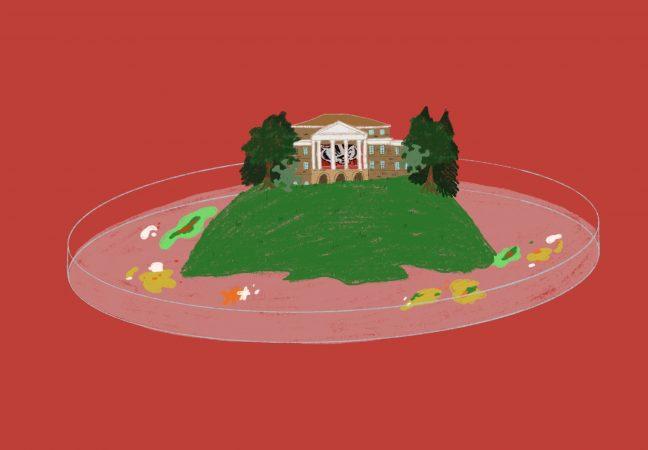Students typically take time to relax during spring break, but with no break this year concerns are rising around mental health.
University of Wisconsin freshman Amelia Zanin had big ideas for her spring break. She wanted to go hiking with her friends, enjoy the beautiful weather and take some much-needed time off from school.
But UW’s decision to cancel spring break due to COVID-19 put an end to those plans.
A year into the pandemic, students like Zanin are exhausted and not having a break to look forward to this semester is taking a toll on them.
“It’s incredibly tiring to continue on for weeks and weeks of working super hard,” Zanin said. “It’s very mentally draining and it’s caused a lot of strain on my mental health.”
This exhaustion led Zanin to sign a change.org petition titled “Give UW-Madison Students Wellness Days.”
Created in early March, the petition has over 3,700 signatures, mostly from students. It is addressed to Vice Chancellor for Student Affairs Lori Reesor.
Since it started, the petition gained traction on students’ social media pages, Zanin said.
This semester runs from January 25 to May 8, meaning students will go 103 days without a break. Many other colleges in the area are still having spring breaks, according to the petition.
While the petition acknowledges the university did schedule three wellness days, it points out these are on a Friday and two Saturdays, which will not help the average student much. Those signing the petition urge UW to give students a more significant break.
Another petitioner, UW sophomore Teddy Brodzinski, believes while UW’s decision to cancel spring break was well-intentioned, it also showed a disregard for students.
“They completely overlooked how much students need that break from school,” Brodzinski said.
Brodzinski added with so many classes being held online, many students are still going on spring breaks, regardless of the cancellation.
Brodzinski is taking 17 credits this semester, often working a job on his time off and he said his busy schedule leaves him feeling burnt out.
“Even if I have a light day, I never have a single day where I don’t have something to do,” Brodzinski said. “It would be nice to get a break and just have nothing to do.”
Despite their support for the petition, both Brodzinski and Zanin doubt the university will make any changes to the spring semester schedule.
According to UW Director of News and Media Relations Meredith McGlone, these are sensible doubts.
At this point, any change to the spring calendar would significantly disrupt classes, McGlone said in an email to The Badger Herald.
Though the petition was created only a few weeks ago, UW’s decision to cancel spring break was put into effect last September, said Assistant Vice Chancellor of University Communications John Lucas.
At that time, university officials could not have anticipated the stress students face today, Lucas said. Instead, they made the most prudent decision they could, given the limited information they had then.
UW-Milwaukee extends spring break, prepares to move classes online due to coronavirus
“We completely empathize with students who are in situations where they’re saying, ‘We’ve had enough, we need more time, we need a break,’” Lucas said. “Not having that sort of break this semester is a real miss.”
Like students, faculty are exhausted, Lucas said. While he acknowledged UW’s attempts to remedy the situation, from the three extra days off to the Mental Health and Wellbeing Summit, he realized these attempts are insufficient for many students.
Nonetheless, Lucas is not sure the university would do things differently if given the chance. Even though we’re more informed now than we were in September, the CDC’s recommendation to limit travel remains in place.
UW announces in-person, graduate-only spring 2021 commencement
Other staff members support the university’s decision as well, citing continued health concerns.
Director of Research Communications Kelly Tyrell said COVID-19 is still spreading. Community infection rates now are similar to rates last September and spring break could make these numbers increase again, potentially leading to another school shutdown.
In addition, some popular spring break destinations lifted restrictions and have high levels of COVID-19 variants and most of the Madison community is not yet vaccinated, Tyrell said.
“Our responsibility on campus is to consider both the needs of our individual students and our individual faculty members and also the needs of our greater community,” Tyrell said.
Marketing and Health Communications Director at University Health Services Marlena Holden, echoed this sentiment, pointing out last year’s spring break caused a significant spike in Madison’s COVID-19 infection rate.
UW RecWell expands in-person intramural offerings for spring semester
In effort to make the rest of the semester feel more manageable for students, the Provost Office sent instructors a message encouraging them to promote student wellbeing, Lucas said. It emphasized the importance of mental health, especially at this time in the semester.
“Basically, the person there who’s in charge of undergraduate education said, ‘hey, instructors, you should really think about taking the foot off the gas in terms of assignments, due dates and projects,’” Lucas said. “Everybody’s kind of in tough shape right now.”


